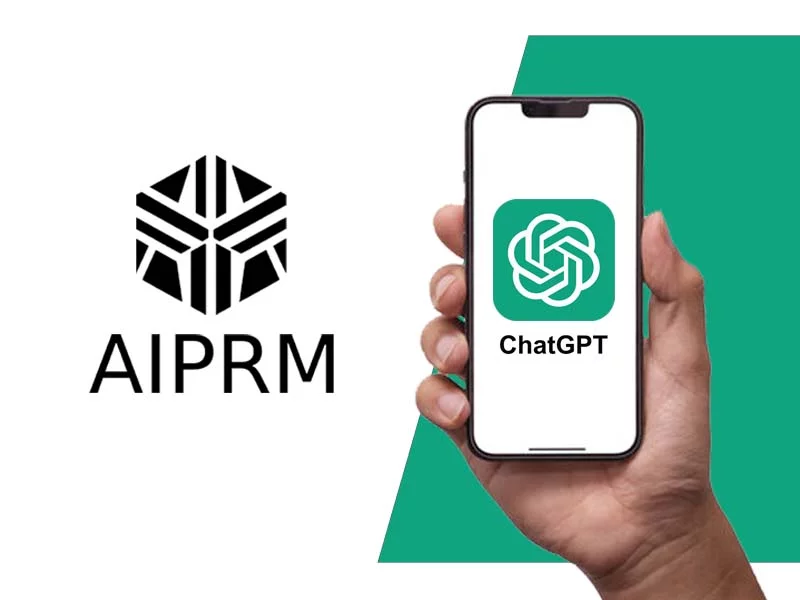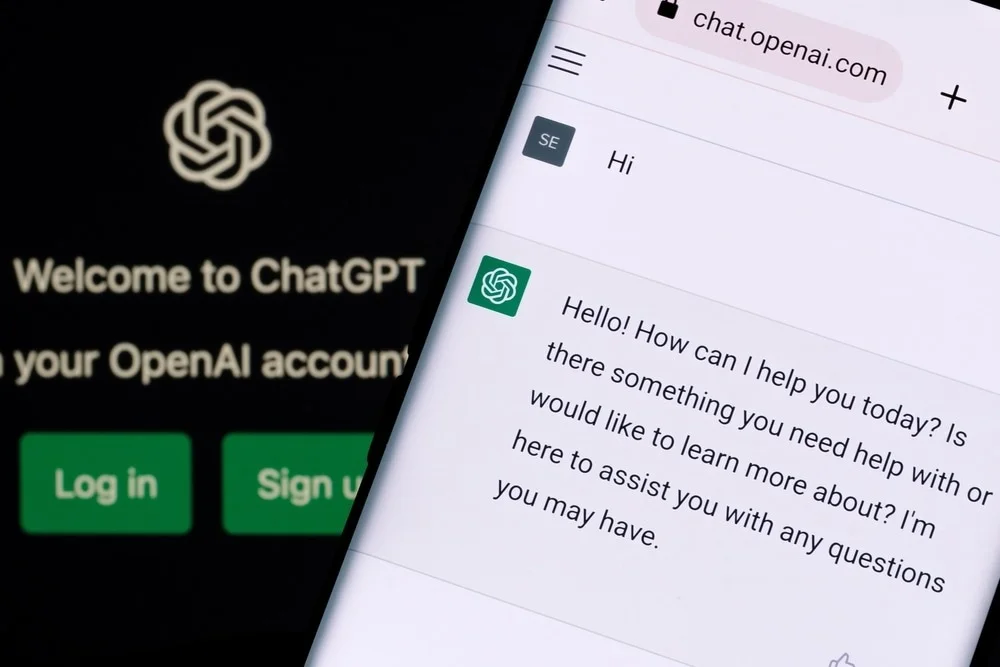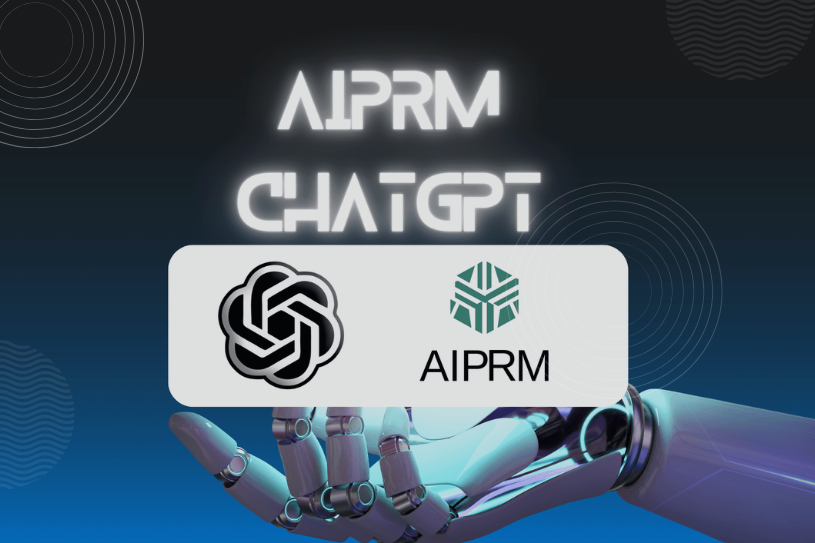Automated In-Process Reinforcement Learning and Monitoring (AIPRM) is a pioneering technology that has contributed to the fast progress of artificial intelligence in recent years. In this blog article, we will look at how AIPRM for Chatgpt transforms its capabilities, as well as its most recent improvements and practical applications.
AIPRM, or Automated In-Process Reinforcement Learning and Monitoring, is a complex technique that allows artificial intelligence models to adjust and enhance their performance in real-time. It blends reinforcement learning, a machine learning paradigm that focuses on decision-making and behavior, with sophisticated monitoring capabilities. This combination enables AI models such as ChatGPT to learn from ongoing interactions and tailor their answers to user input.
Recent Advancements in AIPRM for Chatgpt
Automated in-process reinforcement. Learning and Monitoring (AIPRM) has made significant advances in recent years, leading to the ongoing development of AI models like ChatGPT. Here are some of the most recent breakthroughs in AIPRM technology.
Reduced training time of AIPRM for Chatgpt
One notable advancement in AIPRM is the huge decrease in training time for AI models. Earlier incarnations needed lengthy training periods, which limited the models’ reactivity. Recent technological improvements have shortened the training process, allowing for faster adaptability to user input and more effective learning.
Improved Efficiency in Handling Multiple Data Sources
AIPRM for Chatgpt has developed to handle a diverse set of data sources effectively. This enhancement allows AI models, such as ChatGPT, to effortlessly incorporate data from diverse domains. The capacity to handle various data adds to the model’s adaptability, allowing it to provide more relevant and accurate solutions across a wide range of subjects and businesses.
Real-time adaptation and learning
The most recent improvements in AIPRM emphasize real-time adaptability and continuous learning. This implies that AI models using AIPRM may alter their replies in real time depending on user interactions. The capacity to learn in real-time improves the model’s flexibility and keeps it relevant in dynamic conversational environments.
Improved Ambiguity Resolution
AIPRM for Chatgpt has improved its ambiguity resolution in response to the issue of dealing with ambiguous inquiries. The technology now allows AI models to better perceive and react to complex queries, resulting in more precise and context-appropriate responses. This development promotes a more natural and user-friendly communication experience.
Context Retention Enhancement
AIPRM improvements have focused on increasing context memory during interactions. This implies that AI models, such as ChatGPT, can keep a better knowledge of the current conversation, lowering the likelihood of context loss. Improved context memory leads to more logical and contextually appropriate replies.
These current developments represent a considerable step forward in the capabilities of AIPRM-equipped AI models. Improvements in training speed, data processing, real-time adaptability, ambiguity resolution, and context preservation all help the models comprehend and react to user input more effectively. As AIPRM evolves, it will play an important role in determining the future of AI applications by making them more responsive, adaptive, and capable of offering complex user experiences.
Practical Applications of AIPRM for Chatgpt
The incorporation of Automated In-Process Reinforcement Learning and Monitoring (AIPRM) into ChatGPT enables a wide range of useful applications, demonstrating the technology’s adaptability. Here are a few practical instances where AIPRM for Chatgpt might be quite useful.
Customer Support Optimisation
ChatGPT with AIPRM performs well in the customer service area. It can constantly learn from user interactions, adapt to different inquiries, resolve problems, and deliver real-time answers. This leads to more efficient and personalized customer care experiences, which reduce response times and increase customer satisfaction.
Content Creation and Editing Assistance
Content developers may use ChatGPT and AIPRM to generate and modify content. The model learns from user choices, writing styles, and context to help generate high-quality, contextually relevant material. This is especially important in fields like journalism, marketing, and creative writing.
Language Translation Excellence
AIPRM for Chatgpt boosts language translation capability. It can adapt to changing linguistic subtleties and trends, resulting in more accurate and contextually appropriate translations. Businesses that operate in worldwide marketplaces benefit from this enhanced language translation capability.
Educational Assistance and Personalised Tutoring
ChatGPT, in collaboration with AIPRM, provides personalized coaching in education. It adjusts to each student’s learning style, adapting explanations and examples depending on their progress and understanding. This personalized approach improves the learning experience and offers vital assistance to students across a variety of topics.
Improved healthcare consultations
AIPRM for Chatgpt may play an important role in healthcare discussions. The model offers replies that are consistent with the most recent research and recommendations since it is always learning from the newest medical literature. This guarantees that consumers obtain accurate and up-to-date information in the continually changing sector of healthcare.
Dynamic conversational interfaces
ChatGPT is well-suited for dynamic conversational interfaces due to its real-time adaption capabilities with AIPRM. This includes applications in chatbots, virtual assistants, and other interactive platforms where the model’s capacity to learn and adapt in real-time improves the overall user experience.
Legal and compliance assistance
AIPRM may be used in legal and compliance environments, where ChatGPT can help with analyzing and understanding complicated legal papers, remaining current on regulatory changes, and offering legal advice. This scenario may help to expedite legal research and compliance procedures.
Financial advice and analysis
ChatGPT with AIPRM may be used in financial situations to give advice and analysis. The model can keep up to date on market movements, analyze financial data, and provide insights into investment ideas for individuals seeking financial advice.
These use cases demonstrate ChatGPT’s versatility and practical usefulness with AIPRM across a variety of sectors and fields. As technology advances, its usefulness is expected to grow, providing progressively more complex answers to a diverse spectrum of consumer demands and preferences.
AIPRM for Chatgpt provides several advantages, including improved functionality and user experience for the AI model. Here are several significant advantages:3

Adaptability and Contextual Sensitivity
AIPRM provides ChatGPT with flexibility, enabling the model to develop and improve its answers depending on real-time user interactions. This flexibility improves the model’s context sensitivity, resulting in more accurate and appropriate replies in dynamic talks.
Improved responsiveness
AIPRM significantly improves ChatGPT’s responsiveness. The technique allows the model to learn from ongoing interactions in real-time, saving training time and improving the model’s capacity to respond to user questions in a timely and context-aware manner.
Handling Ambiguity and Context Switching
AIPRM gives ChatGPT the ability to manage ambiguous requests and fluidly flip between contexts inside a discussion. This is critical for conversational coherence and ensuring that the model correctly interprets and reacts to human input.
Versatility across domains
The addition of AIPRM expands ChatGPT’s capabilities across several domains. The model may include data from several sources, making it knowledgeable and adaptable to a broad variety of issues. This adaptability is beneficial to people looking for information or assistance in a variety of businesses and topics.
A mechanism for continuous learning
AIPRM incorporates a continuous learning mechanism into ChatGPT, enabling the model to learn and adapt in real time. As users participate in discussions, the model refines its knowledge, ensuring that it remains current and gives replies that are consistent with the most recent facts and user preferences.
Effective handling of user feedback
AIPRM for Chatgpt enables effective management of user input. The model may learn from both good and negative feedback and adapt its responses appropriately. This iterative learning process helps to improve the model’s performance over time, which increases customer happiness.
Enhanced user engagement
AIPRM provides flexibility and enhanced reactivity, which leads to a more engaging user experience. ChatGPT can maintain meaningful and contextually rich discussions, which makes interactions with the AI model more natural and user-friendly.
Optimized Problem-Solving
AIPRM improves ChatGPT’s problem-solving ability. Learning from each user contact allows the model to dynamically adapt its replies to difficult inquiries, solve problems, and suggest solutions. This optimization is very useful in applications like customer care.
The reduced training time of AIPRM for Chatgpt
AIPRM’s advances include reduced training time for ChatGPT. This implies that the model can respond faster to user input and changes, ensuring that it stays responsive and efficient without requiring lengthy training periods.
In summary, AIPRM has several advantages over ChatGPT, including increased reactivity and flexibility, greater problem-solving, and shorter training sessions. These benefits combine to provide a more complex and user-centric AI experience, establishing AIPRM-equipped ChatGPT as a flexible and efficient solution for a wide range of applications and sectors.

Challenges and Ethical Considerations of AIPRM for Chatgpt
While Automated In-Process Reinforcement Learning and Monitoring (AIPRM) improves the capabilities of AI models such as ChatGPT, its implementation introduces significant problems and ethical concerns that must be addressed.
Bias and Fairness
AIPRM for Chatgpt learns on user interactions, hence it is vulnerable to biases in the data it analyses. Biassed training data may produce biased answers, perhaps reinforcing preconceptions or discriminating language. Developers must take steps to uncover and reduce biases, resulting in fair and impartial outputs.
Privacy concerns
AIPRM’s continual learning from real-time interactions raises privacy concerns. As the model changes depending on user input, it is necessary to achieve a balance between personalization and user privacy. It is critical to ensure that sensitive information is handled responsibly, as well as that user data is properly anonymized and safeguarded.
Ethical AI application
As AI models get more powerful, ethical concerns about their usage become critical. Developers and organizations must create rules for the ethical deployment of AIPRM-enabled models, ensuring that the technology is utilized ethically and beneficially.
Transparency and Explainability of AIPRM for Chatgpt
The complicated learning mechanisms in AIPRM may make it difficult to grasp and explain how AI models reach certain conclusions. Ensuring openness and explainability in AI decision-making is critical for fostering user trust and improving knowledge of how the technology works.
Security risks
The continual learning aspect of AIPRM for Chatgpt creates security issues. There is a risk of vulnerability if the model learns from malicious inputs or is influenced to produce destructive answers. Robust security mechanisms must be in place to guard against adversarial assaults and maintain the AI system’s integrity.
Ongoing model monitoring
AIPRM involves continual monitoring to detect and correct problems that may develop throughout the learning process. Regular model audits and monitoring systems are required to guarantee that the model’s behavior is consistent with ethical standards and user expectations.
User Consent and Control
Users should be informed clearly about how their data is utilized, and their agreement should be secured for the AIPRM-enabled continuous learning system. Furthermore, allowing users to select how much of their data is used to update models is critical for honoring individual choices and privacy concerns.
Regulatory compliance
As AI technologies improve, legal frameworks must evolve to accommodate new issues. Ensuring compliance with current and developing rules is critical for navigating the legal environment and promoting responsible AI research and deployment.
Unintended consequences
The dynamic nature of AIPRM may result in unintended outcomes, such as the model producing unexpected or incorrect reactions. Developers must anticipate and handle these possible difficulties via extensive testing and continuous improvement of the model’s behavior.
Conclusion
Finally, AIPRM for Chatgpt represents a substantial advancement in the capabilities of AI models. The advantages, which range from increased flexibility and responsiveness to better problem-solving, demonstrate the potential of AIPRM-equipped models to revolutionize a variety of sectors and applications.
However, like with any disruptive technology, it is critical to recognize and address the problems and ethical implications that AIPRM brings. Bias reduction, privacy issues, openness, and continual monitoring are essential factors that must be carefully addressed to enable the responsible and ethical deployment of AI systems.










